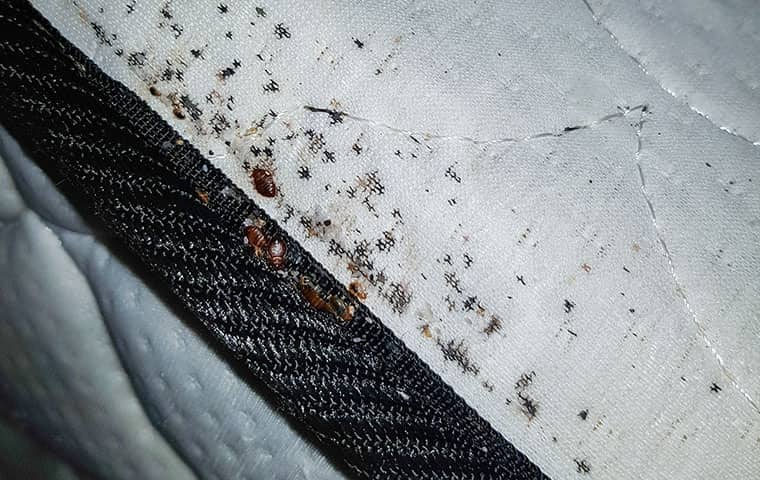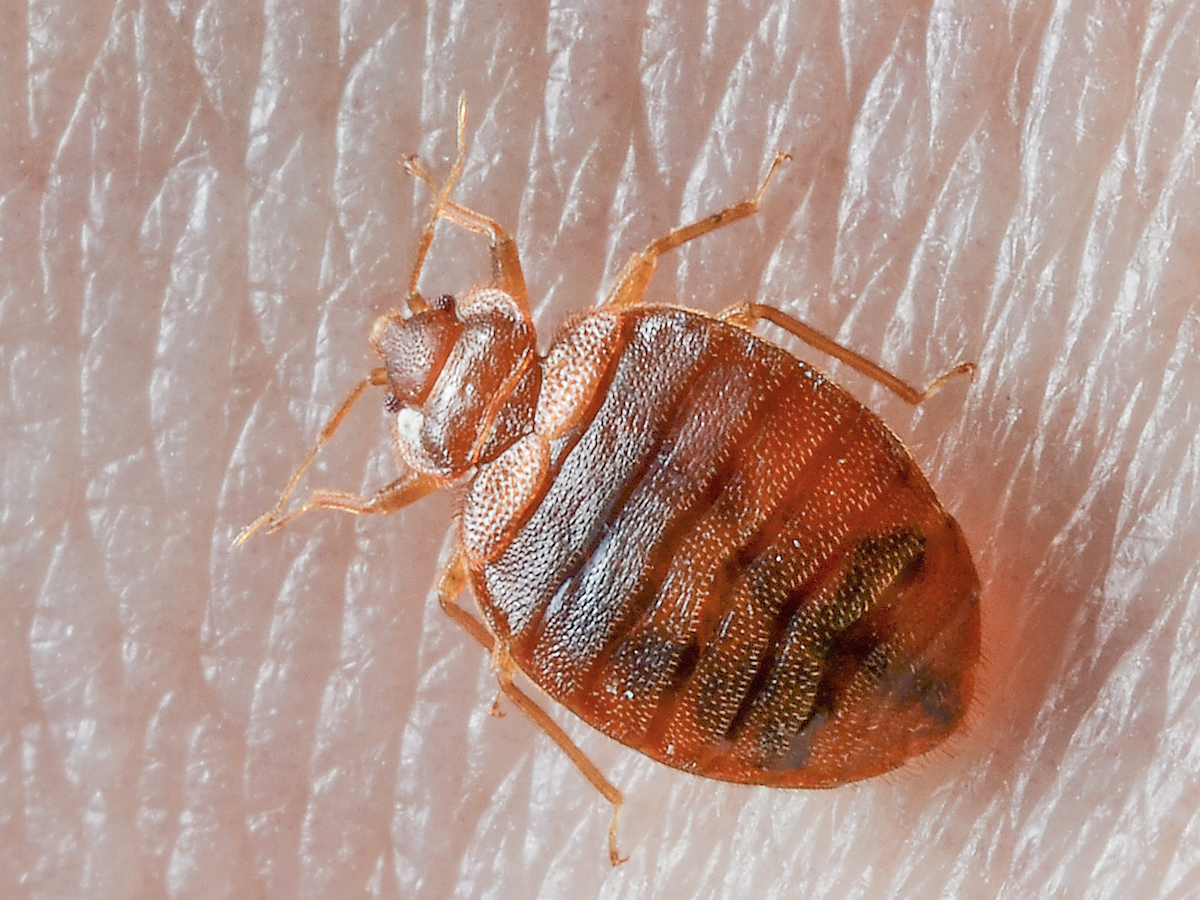Identifying the Bugs

Small black hard-shelled bugs in your bedroom can be a nuisance, and identifying them is the first step to getting rid of them. There are several types of bugs that fit this description, each with unique characteristics and habits.
Identifying the Bug
To determine the exact type of bug you’re dealing with, it’s important to carefully observe its appearance and behavior. The following details will help you narrow down the possibilities:
* Size: Measure the bug’s length in millimeters or inches.
* Shape: Note the bug’s overall shape, including whether it’s oval, round, or elongated.
* Color: Observe the bug’s primary color, as well as any markings or patterns on its body.
* Distinguishing Features: Look for any unique features, such as antennae, legs, or wing structures.
* Behavior: Observe how the bug moves, whether it flies, and if it bites or stings.
Potential Habitats and Behaviors
The following are some common types of small black hard-shelled bugs found in bedrooms, along with their typical habitats and behaviors:
* Carpet Beetles: These small, oval-shaped beetles are typically 1/16 to 1/8 inch long. They have a dark brown or black color and may have small, white patches on their wings. Carpet beetles feed on natural fibers, including wool, silk, and feathers. They are often found in areas where carpets, rugs, and upholstery are present.
* Bed Bugs: These small, oval-shaped insects are typically 1/4 to 1/2 inch long. They have a reddish-brown color and are often mistaken for ticks. Bed bugs feed on human blood and are commonly found in mattresses, bed frames, and furniture.
* Roaches: While roaches come in various sizes and colors, some species are small and black. They are typically oval-shaped and have long antennae. Roaches are omnivorous and can be found in kitchens, bathrooms, and other areas with food and water.
* Centipedes: Centipedes are elongated, segmented creatures with many legs. They can range in size from a few millimeters to several inches long. Centipedes are carnivorous and prefer damp environments. They are often found in basements, crawl spaces, and bathrooms.
* Millipedes: Millipedes are similar to centipedes in appearance but have two pairs of legs on each body segment. They are typically brown or black and can range in size from a few millimeters to several inches long. Millipedes are herbivorous and prefer damp environments. They are often found in gardens, under rocks, and in decaying wood.
Assessing the Infestation: Small Black Hard Shell Bugs In Bedroom

It’s important to get a good understanding of the extent of the infestation to determine the best course of action for getting rid of the bugs. This involves carefully observing the bugs and their behavior, noting any signs of damage they may be causing, and assessing the areas of your bedroom that are affected.
Bug Activity Patterns
To get a clearer picture of the infestation, it’s crucial to observe the bugs’ activity patterns. This involves noting when they are most active and where they tend to congregate. For example, are they more active at night or during the day? Are they found in specific areas of the bedroom, like under the bed, behind furniture, or near the walls?
Managing the Infestation

Once you’ve identified the bugs and assessed the severity of the infestation, it’s time to take action to eliminate them and prevent their return. This section will guide you through various methods, from safe and effective insecticides to natural remedies, and preventative measures.
Using Insecticides
Insecticides can be a powerful tool in eliminating infestations. However, it’s crucial to choose the right type and use it safely.
- Read the label carefully before using any insecticide. This will provide information about the specific type of bugs it targets, application instructions, safety precautions, and potential risks.
- Choose a product specifically designed for the type of bugs you have. There are different insecticides for different types of pests.
- Apply the insecticide according to the label instructions. This includes the appropriate amount, frequency, and areas to be treated.
- Wear protective gear, such as gloves, masks, and eye protection, when applying insecticides.
- Store insecticides properly in their original containers and keep them out of reach of children and pets.
Using Traps
Traps offer a more targeted approach to pest control and can be a good alternative to insecticides, especially if you have children or pets.
- Sticky traps are effective for capturing crawling insects like beetles. They are relatively inexpensive and easy to use.
- Glue traps work similarly to sticky traps but are more durable. They are often used for larger pests.
- Pharaoh ant traps are specifically designed to attract and kill pharaoh ants, a common household pest.
- Insect traps that use light or heat to attract and kill flying insects, such as moths and flies.
Natural Remedies
For those seeking a more natural approach, several remedies can help control infestations.
- Diatomaceous earth is a fine powder made from fossilized algae that can kill insects by dehydrating them. It’s safe for humans and pets when used properly.
- Essential oils like peppermint, lavender, and tea tree oil have insecticidal properties. Dilute them in water and spray around areas where bugs are present.
- Borax is a natural mineral that can kill insects by disrupting their digestive system. It’s important to use borax cautiously, as it can be toxic to pets and children if ingested.
- Vinegar can be used to repel some insects. Spray diluted vinegar on surfaces where bugs are present.
Preventive Measures, Small black hard shell bugs in bedroom
Preventing infestations is key to keeping your home bug-free. Here are some essential steps:
- Seal cracks and crevices in your home’s foundation, walls, and windows. This will prevent bugs from entering.
- Maintain cleanliness. Regularly vacuum and dust your home, especially in areas where bugs are likely to hide, such as under furniture and behind appliances.
- Store food properly in airtight containers to prevent attracting bugs.
- Remove clutter. Clutter provides hiding places for bugs, so keep your home tidy and organized.
- Wash dishes promptly to prevent attracting ants and other bugs.
- Keep garbage cans clean and tightly sealed to prevent attracting flies and other pests.
Professional Pest Control Services
If you’re dealing with a severe infestation or if DIY methods aren’t working, consider contacting a professional pest control service.
- Professional pest control services have the expertise and equipment to effectively eliminate infestations. They can also identify the type of bug and determine the best course of action.
- Professional services can provide long-term solutions to prevent future infestations. They can inspect your home for entry points and recommend preventative measures.
Small black hard shell bugs in bedroom – Finding small black hard shell bugs in your bedroom can be unsettling, but it’s important to remember that a clean and organized space can help deter these unwelcome guests. If you’re looking to create a more functional and inviting bedroom environment, consider adding a small desk and chair for bedroom to create a dedicated work or study area.
This can help keep your belongings organized and reduce clutter, making it easier to spot any potential bug infestations.
Small black hard shell bugs in your bedroom can be a frustrating and unsettling experience. While focusing on pest control is essential, perhaps creating a calming and inviting atmosphere in your bedroom can help ease your mind. A pink and blue bedroom can offer a sense of peace and tranquility, making it easier to relax and sleep soundly, even if the occasional bug makes an appearance.
Remember, a clean and well-maintained bedroom is your best defense against unwanted pests, and a soothing atmosphere can help you cope with the situation.
